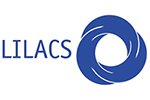ISSN Online: 2177-1235 | ISSN Print: 1983-5175
Showing of 1 until 1 from 1 result(s)
Search for : João Firmino da Silva
Treatment of complex wounds with PVC prosthesis and autologous partial skin graft: Accelerated and low-cost third-intention healing protocol
ABSTRACT
Introduction: Complex wounds are serious tegumentary injuries that are difficult to resolve with conventional dressings. This study aimed to describe a third-intention wound healing technique, reproducible and low cost, applicable to complex wounds, using polyvinyl chloride (PVC) prosthesis temporarily placed in the injured area to promote the protection and stimulate its "granulation," followed by autologous partial-thickness skin grafting.
Method: Consecutively, 20 patients with complex wounds resulting from external causes were selected and divided into 2 groups: A - patients who underwent the coverage technique with PVC prosthesis, followed by grafting, and B - patients submitted to the care of the dressing team, with daily changes until wound granulation, standard in our institution. Patients were evaluated regarding length of stay; costs; local pain; complications; the time until medical discharge; and patient satisfaction.
Results: The length of hospital stay, its costs, and the time until medical discharge were shorter in group A (p<0.05). However, there was no statistically significant difference in local pain between techniques A and B.
Conclusion: The technique using PVC prosthesis and graft has good efficacy for treating complex wounds, being reproducible and inexpensive.
Keywords: Wounds and Injuries; Wound healing; Polyvinyl chloride; Skin transplantation; Therapeutics
RESUMO
Introdução: Feridas complexas são lesões tegumentares graves, de difícil resolução com
curativos convencionais. O objetivo deste estudo foi descrever uma técnica
de cicatrização de feridas por terceira intenção, reprodutível e de baixo
custo, aplicável a feridas complexas, utilizando uma prótese de policloreto
de vinila (PVC) colocada temporariamente na área da lesão para promover
proteção e estimular sua "granulação", seguida de enxerto autólogo de pele
de espessura parcial.
Método: De forma consecutiva, foram selecionados 20 pacientes com feridas complexas,
decorrentes de causas externas, divididos em 2 grupos: A - pacientes que
foram submetidos à técnica de cobertura com prótese de PVC, seguida de
enxerto; e B - pacientes submetidos aos cuidados da equipe de curativo, com
trocas diárias até granulação da ferida, padrão da nossa instituição. Os
pacientes foram avaliados quanto ao tempo de internação; custos; em relação
à dor local; à presença de complicações; ao tempo até a alta médica; e à
satisfação do paciente.
Resultados: O tempo de internamento e seus custos, assim como o tempo até a alta médica,
foram menores no grupo A (p<0,05). Todavia, não houve
diferença estatisticamente significativa em relação à dor local entre as
técnicas A e B.
Conclusão: A técnica utilizando prótese de PVC e enxerto possui boa eficácia para o
tratamento de feridas complexas, sendo reprodutível e de baixo custo.
Palavras-chave: Ferimentos e lesões; Cicatrização; Cloreto de polivinila; Transplante de pele; Terapêutica
 All scientific articles published at www.rbcp.org.br are licensed under a Creative Commons license
All scientific articles published at www.rbcp.org.br are licensed under a Creative Commons license






